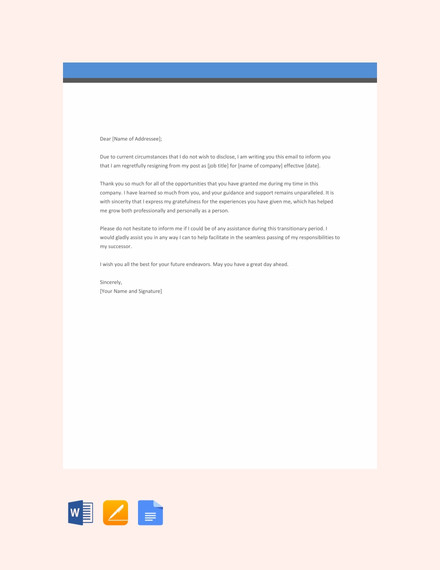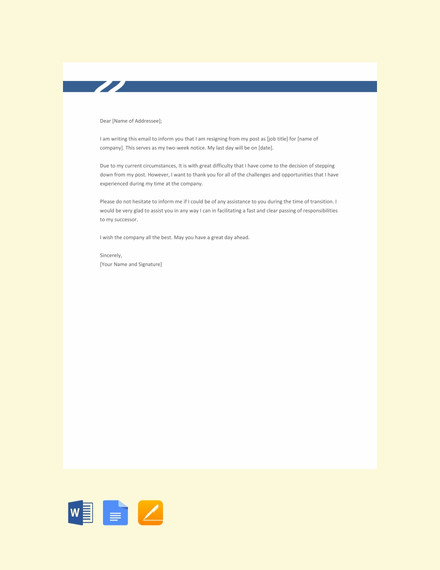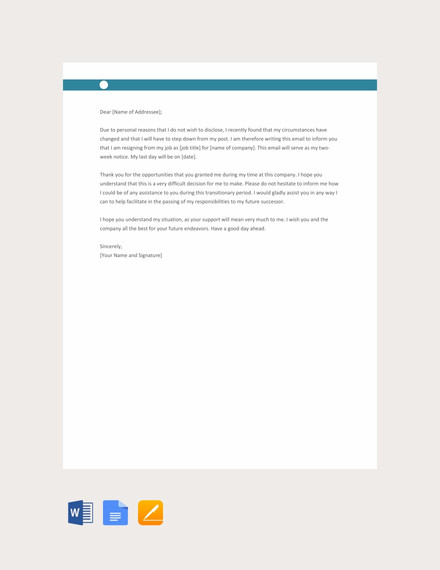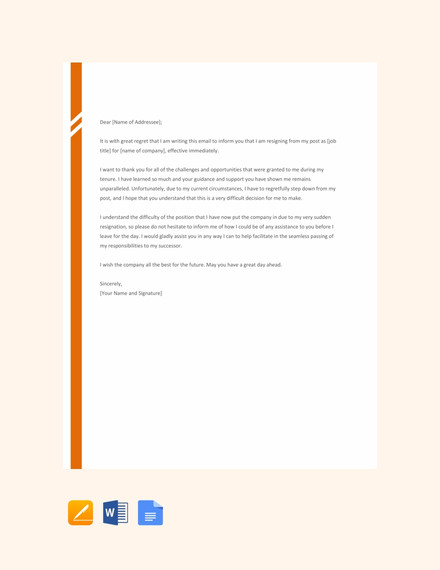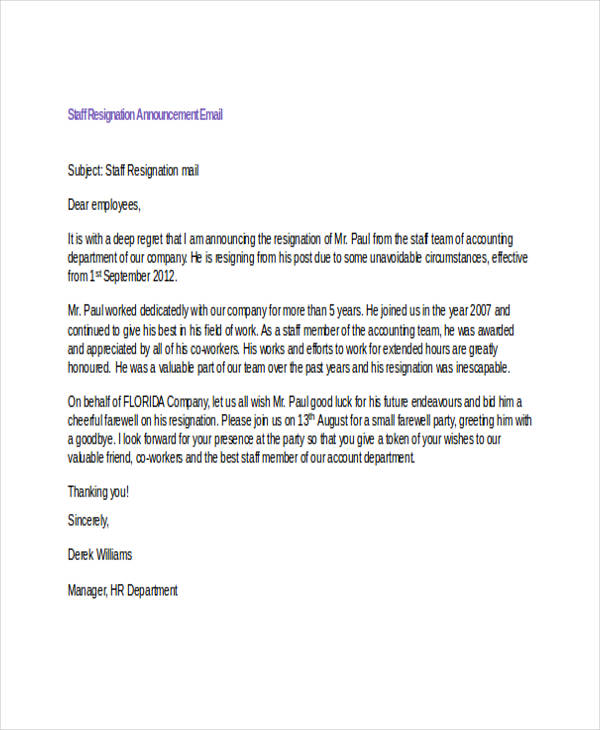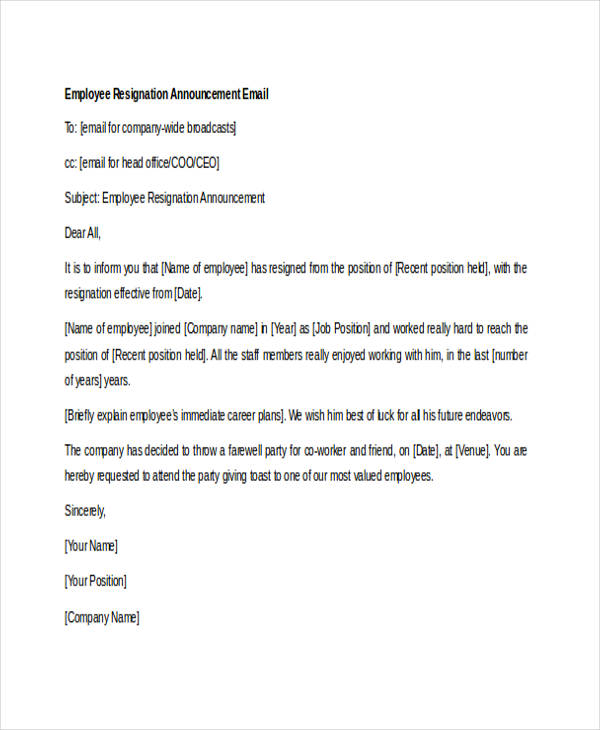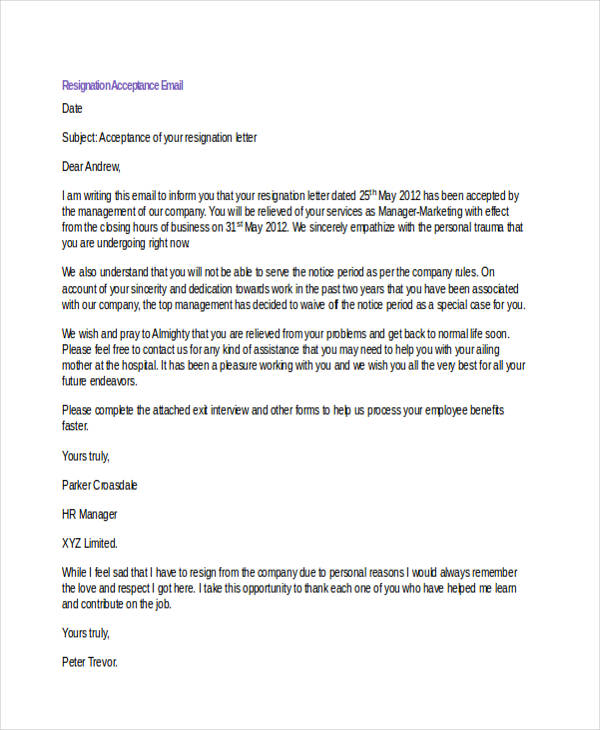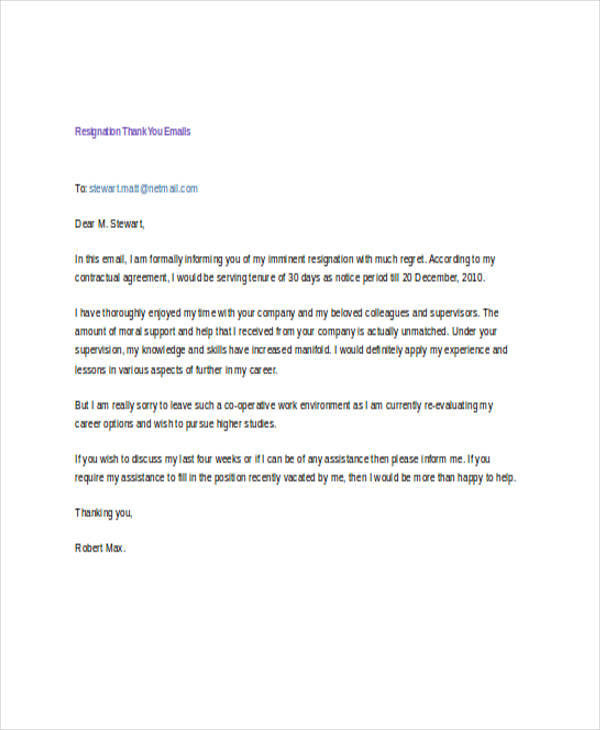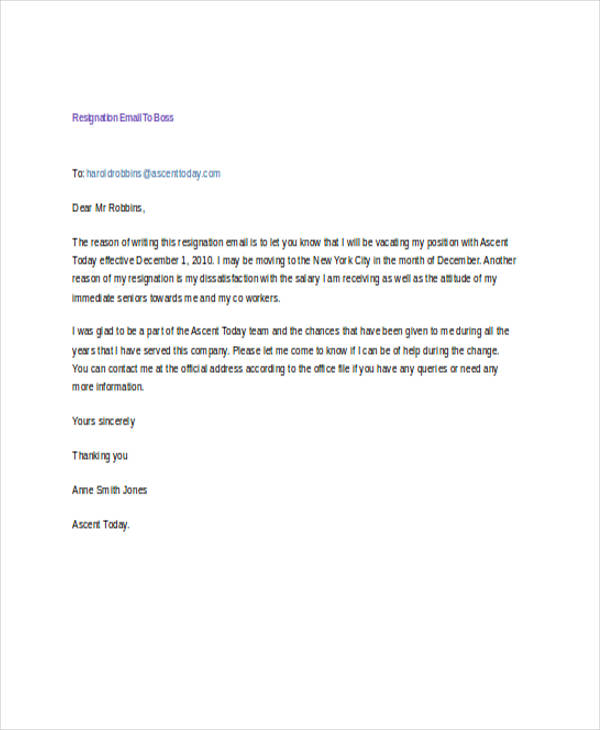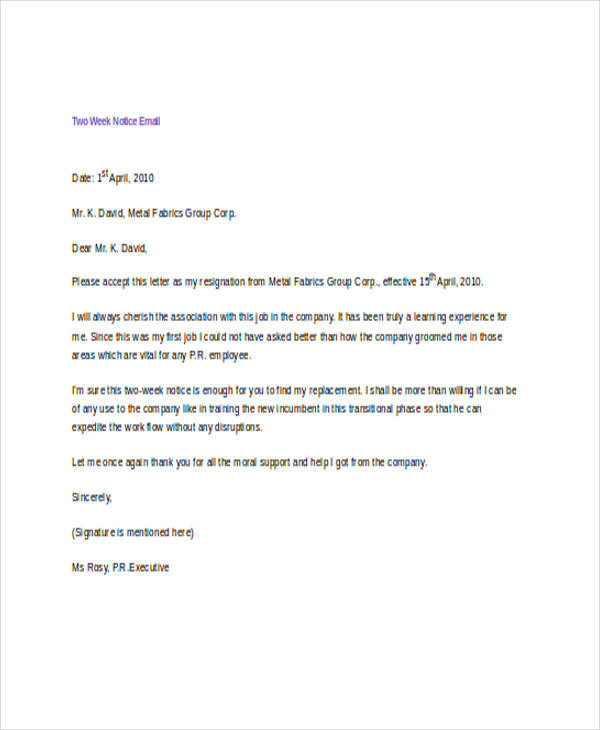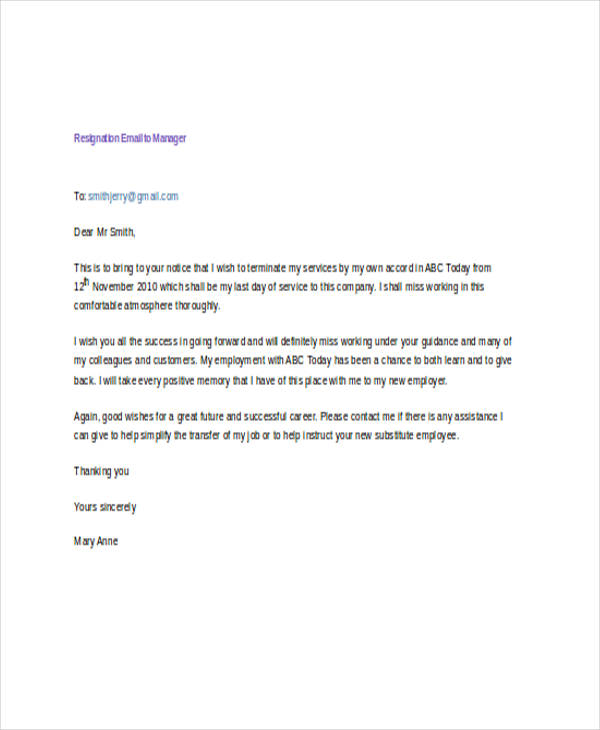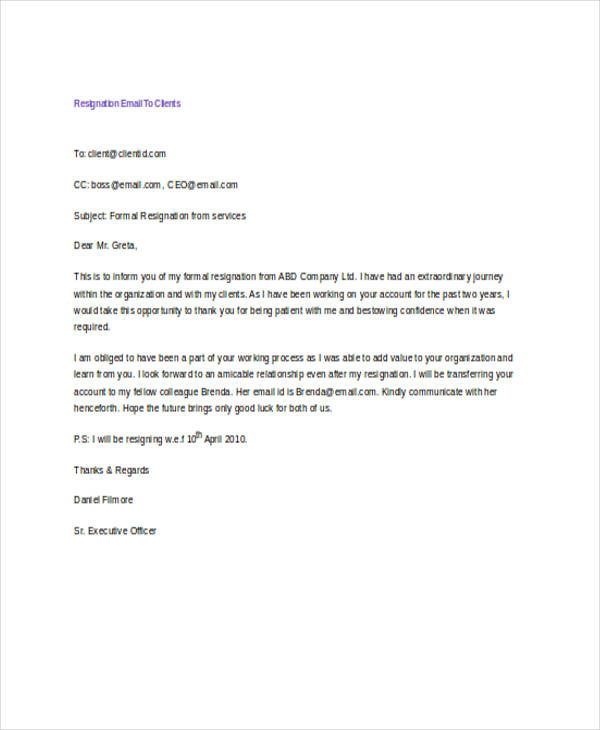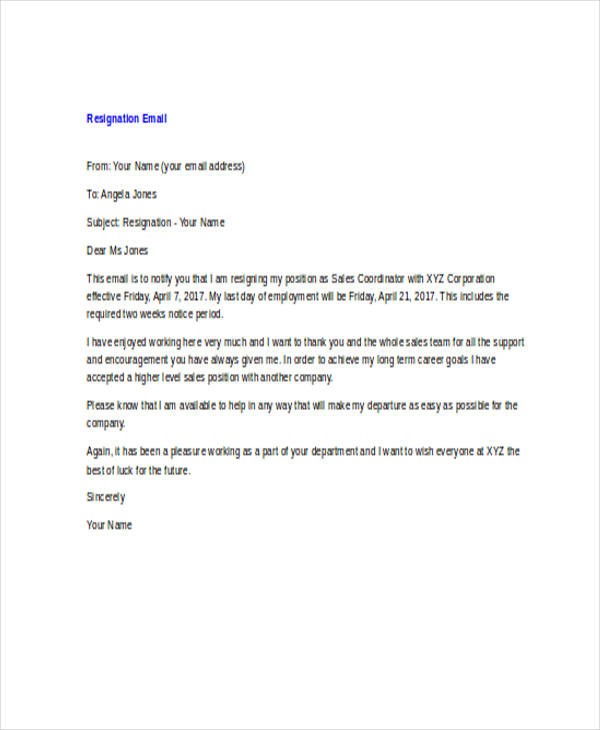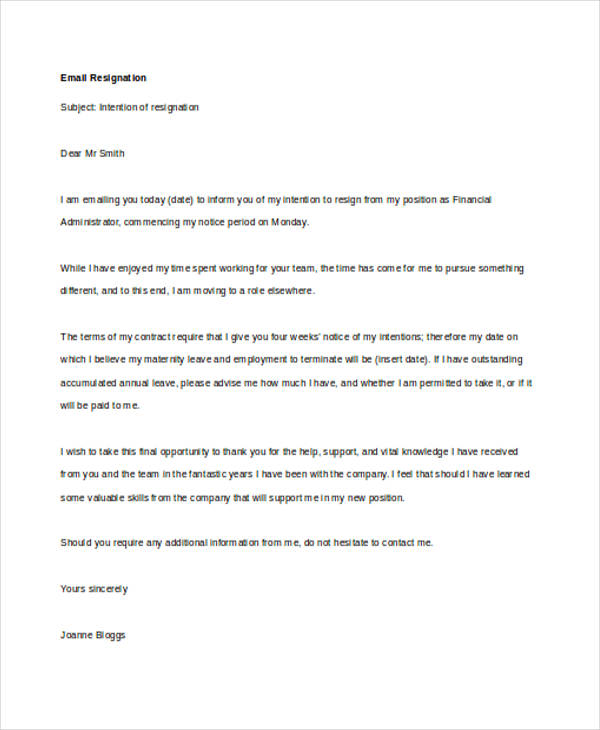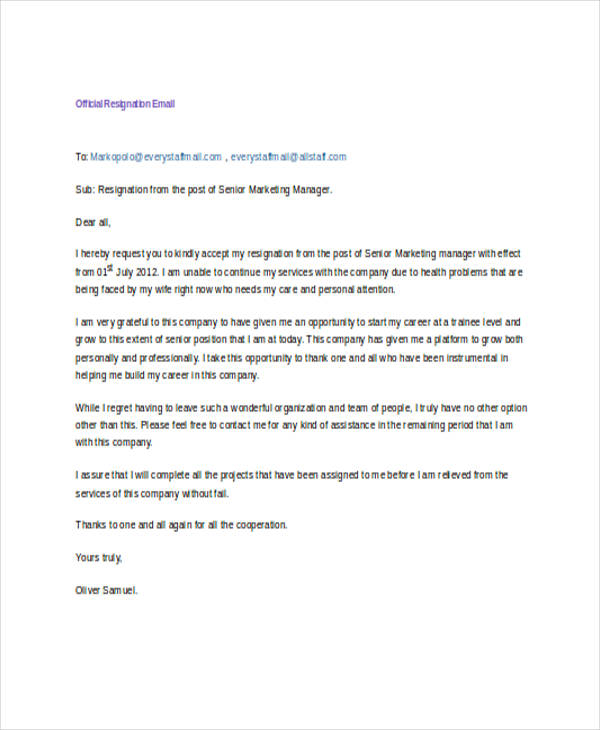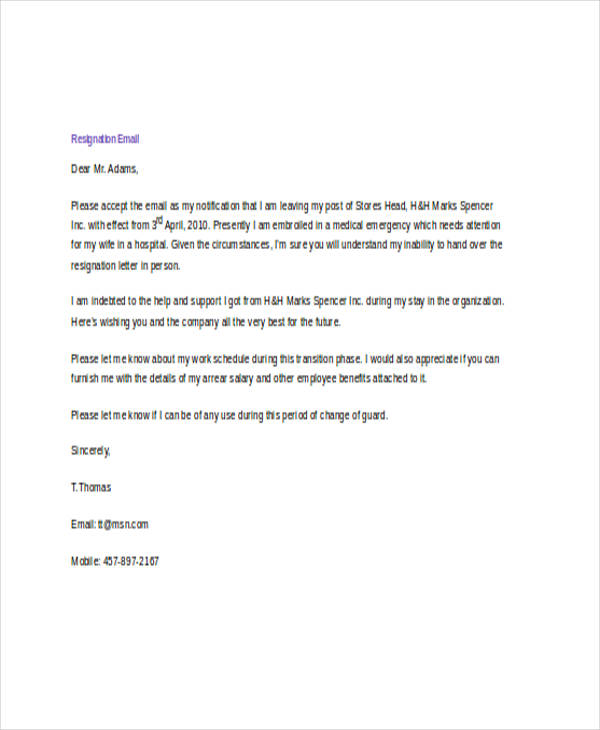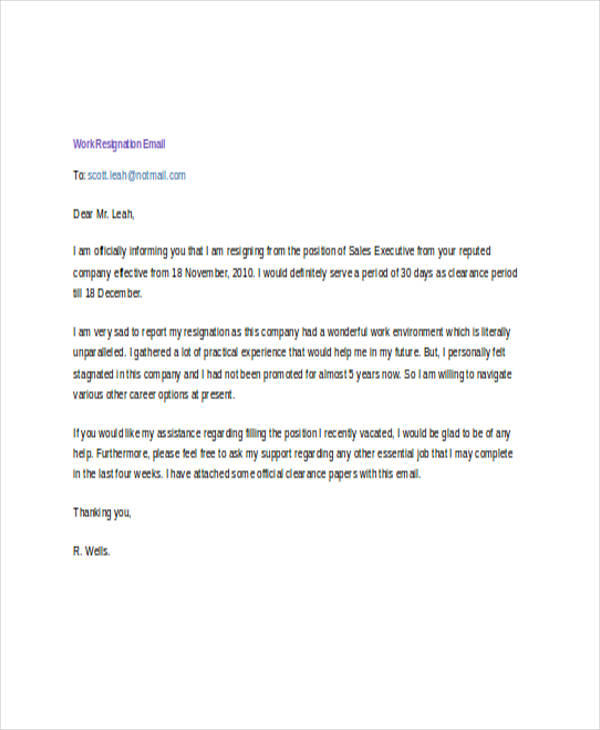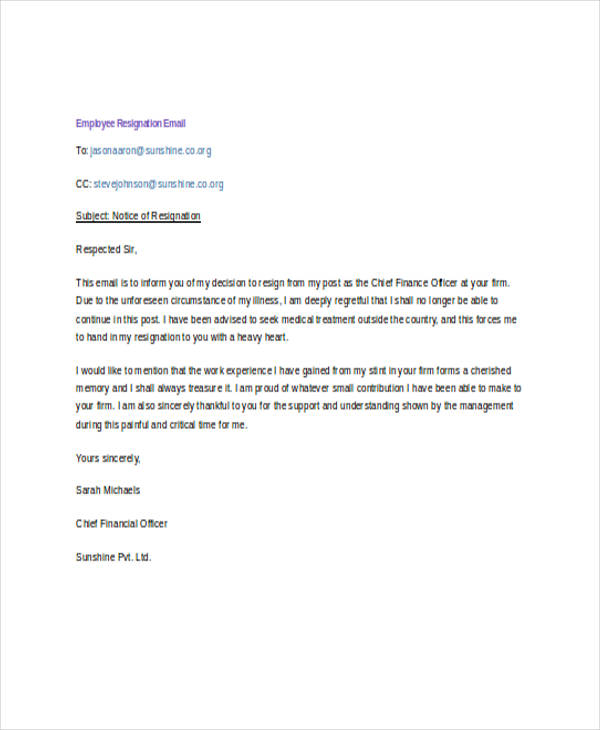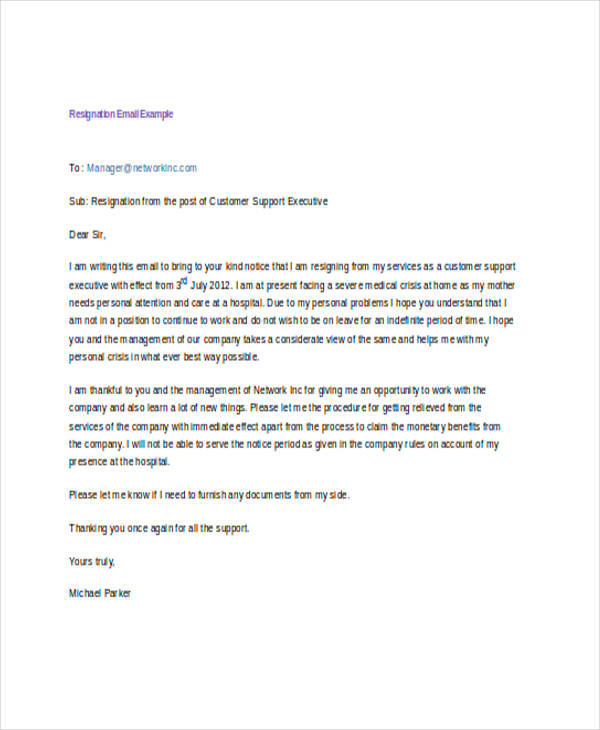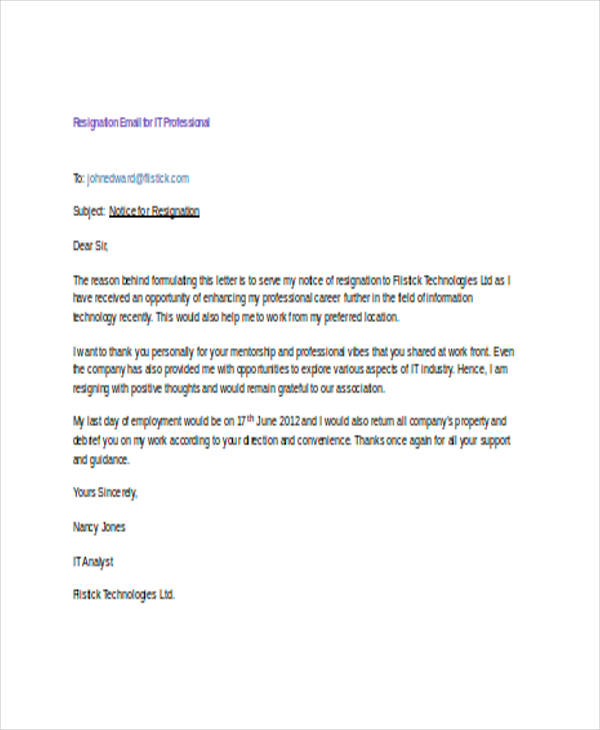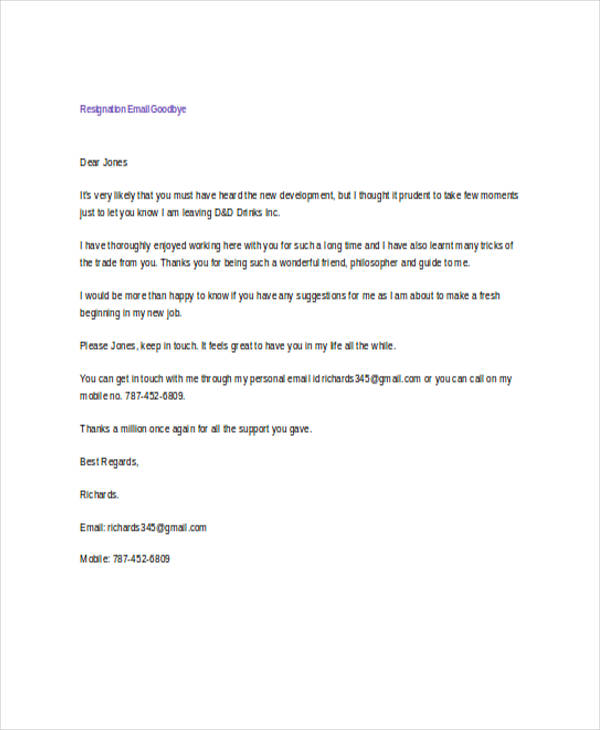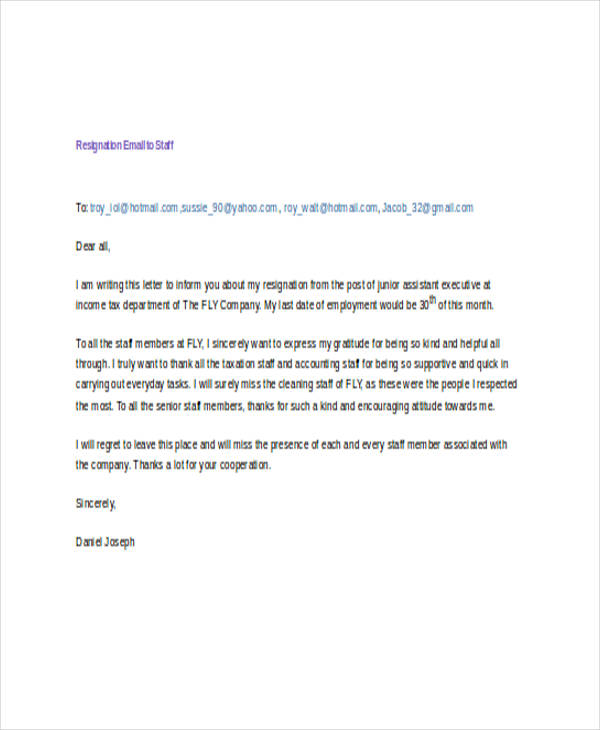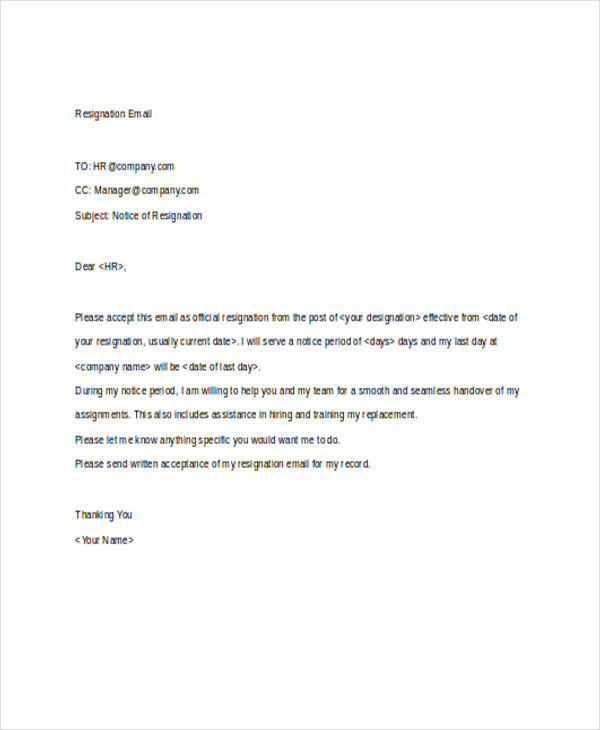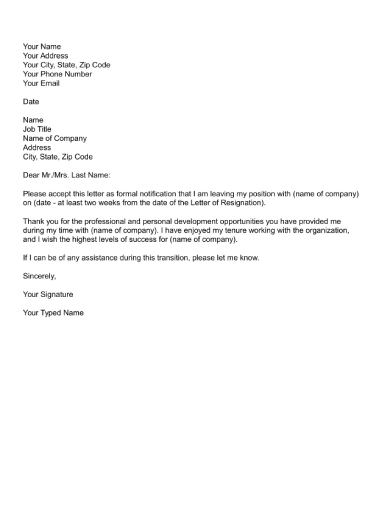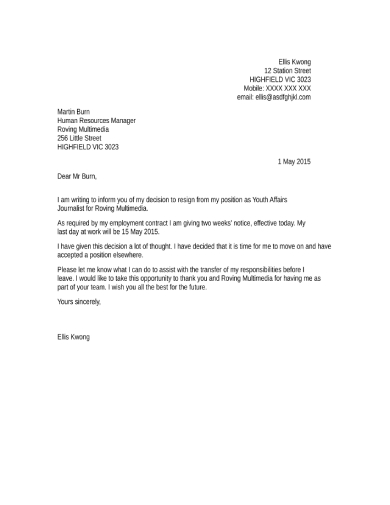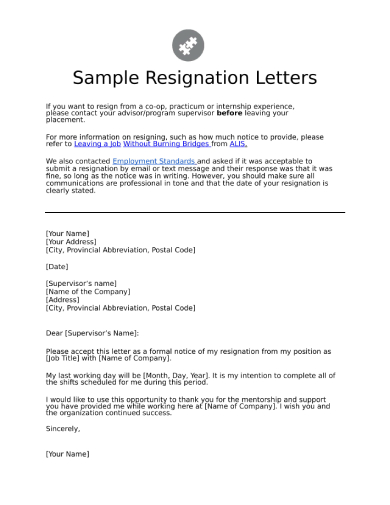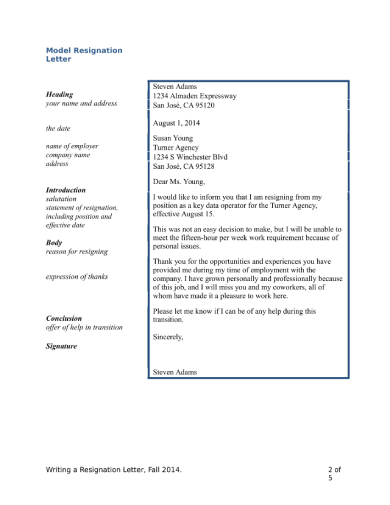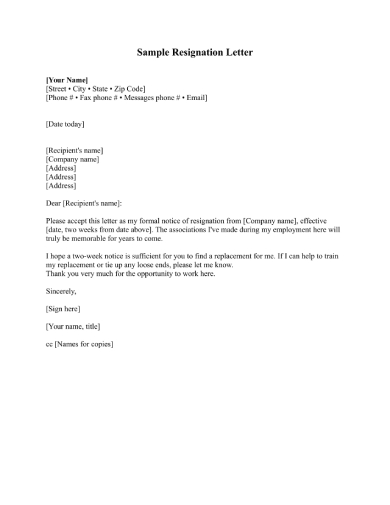27+ Resignation Email Examples to Download
If you are thinking of quitting your job for whatever reason, it is most preferable to get consent from your employer through a face-to-face conversation. However, there are some circumstances that may hinder you to resign in person. In cases like this, utilizing email messages in your resignation letter could be a great substitute.
Basic Email Resignation Letter Template
Resignation Email with Notice Period Template
Email Resignation Letter for Personal Reasons Template
Email Resignation Letter Without Notice Period Template
Staff Resignation Announcement
Employee Resignation Email
Resignation Acceptance Email
Resignation Thank You Email Example
Resignation Email to Boss
Two-Week Notice Resignation Email
Resignation Email to Manager
Resignation Email to Clients
Formal Resignation Email
Plain Resignation Email
Official Resignation Email
Professional Resignation Email
Work Resignation Email
Employee Resignation Email
Simple Resignation Email
IT Resignation Example
Resignation Goodbye Email
Resignation Email to Staff
Resignation Email to HR
Career Services Resignation Email Letter Sample
Youth Central Resignation Email Letter Sample
Internship Resignation Email Letter
Resignation Email Letter Writing
Brief Resignation Email Letter
What Is a Resignation Email?
A resignation email is a professional email and a written document through the form of an email that an employee sends to explain in detail about his or her resignation. Resignation emails vary from one another because it is a subjective matter. Hence, it would be practical to initially give you a broad overview of how a resignation letters are done by email.
How to Create a Proper Resignation Email
People find it hard to write a email resignation letter especially if it is the first time they are writing it. You might find resigning from a job really frustrating and writing your way out of it even more so.
Step 1: Express It Yourself
You can search for multiple samples of resignation letter but all of these are just guiding models, not replicas of the standard letter for resignation content. You may reflect on these examples regarding the format, but the whole message should be completely yours. Think of it as saying goodbye to a friend but just in a formal way.
Step 2: Conciseness Is Still the Key
Remember you are not writing a letter to be featured in a television program. As much as possible, you can keep your letter short as much as it carries the complete thought of you want to convey. However, since it is your last document to be written for the company, you can make the most of it. If you want to thank specific colleagues or executives.
Step 3: Have the Complete and Necessary Details
There are specific pieces of information that must be present in your letter of resignation. Though you are the master of your content, do not forget to include the essentials in your letter. These details are needed because it allows the company to create the proper measurements in response to your renunciation.
Step 4: Send It in a Proper Way and Great Timing
It is always important to talk face-to-face with the HR or supervisor before doing so. Rethink that each one of you in your company plays a vital role in the overall success of the institution and losing even just one of you makes a difference. Hence, for your employer to be prepared, write a two weeks notice letter before the official date of your resignation.
FAQs
What to include in a resignation email?
The basic things you have to include in your resignation notice email are: the complete information of your boss or the person you are addressing the email to, the subject line, your name, the department, and the position you are assigned, a formal greeting, the information about your resignation, the effective date of your resignation and the date of your last day, a quick thank you email message, a formal closing, and your name and signature.
How to resign politely and professionally?
Whether you like it or not, respect and courtesy should be observed at all times to protect your reputation and avoid any incoming conflicts. The same thing goes in leaving the company you are currently in. If you are finding a hard time to resign, there are things you can take to consideration: consult your HR or your supervisor, compose a resignation letter, be careful how you word your letter, complete the remaining tasks, and lastly, avoid posting it in any social media sites.
How do you start a resignation email?
As much as possible, be honest and stay positive. Do not complain about the things you don’t like about your company—you are not writing a complaint email. Make sure to leave a great last impression to your employers and co-workers. Also, it is best to send your email two weeks (or depending on what is stated in your contract) before your planned resignation date.
There is no single emotion that could describe resignation in general. For some, it is a joyful moment at liberty while for some, it is a tear jerking goodbye. Always remember that you should write your resignation letter in a formal and tone. You can also include positive remarks about the company but as much as possible, do not write negative comments about them. If your reason in leaving is another job opportunity, you can use euphemisms (e.g. explore new opportunities). And try to sound positive at all times.



